Cover letter template fresh graduate
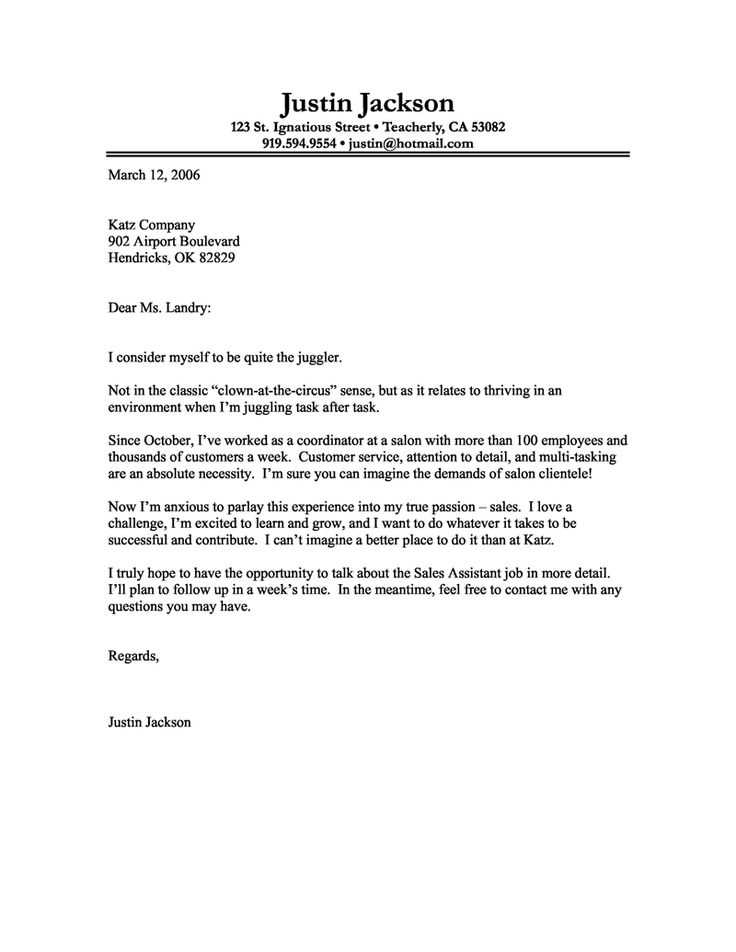
Begin your cover letter by directly addressing the role you’re applying for. Avoid generic openings. Show your understanding of the position and demonstrate your enthusiasm right away. Employers appreciate clarity and confidence, so stating how your academic background equips you for the job is effective.
Instead of listing general skills, highlight specific achievements or projects that directly align with the job. If you’ve worked on team projects or research during your studies, describe how these experiences prepare you to contribute to the company. Show them you are eager to apply your knowledge in a real-world setting.
Wrap up by confidently expressing your interest in the role and willingness to discuss further details. Include a polite request for an interview, making sure to mention how you can be reached. Personalize each letter to show you’ve taken the time to research the company and the job you’re aiming for.
Cover Letter Template for Fresh Graduates
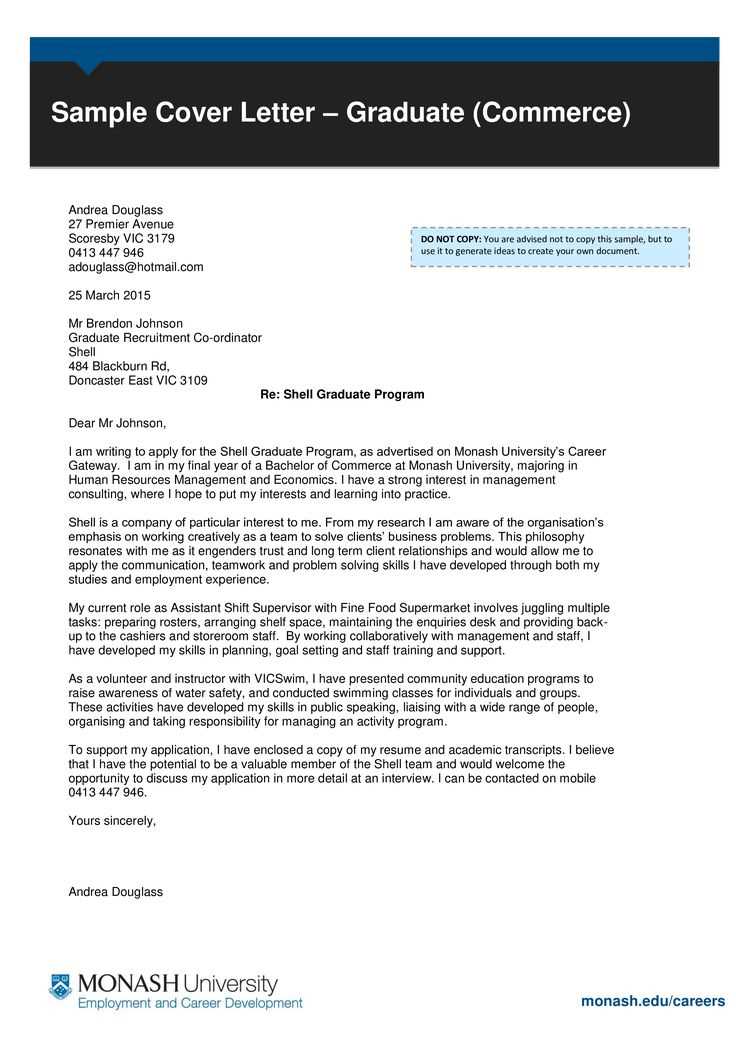
Focus on making a strong first impression with your cover letter. Start by addressing the hiring manager by name whenever possible. Personalize the introduction to show genuine interest in the role and the company. Highlight how your academic background and any relevant projects or internships align with the position’s requirements. Keep the tone confident and professional, but avoid sounding too formal or robotic.
Introduction
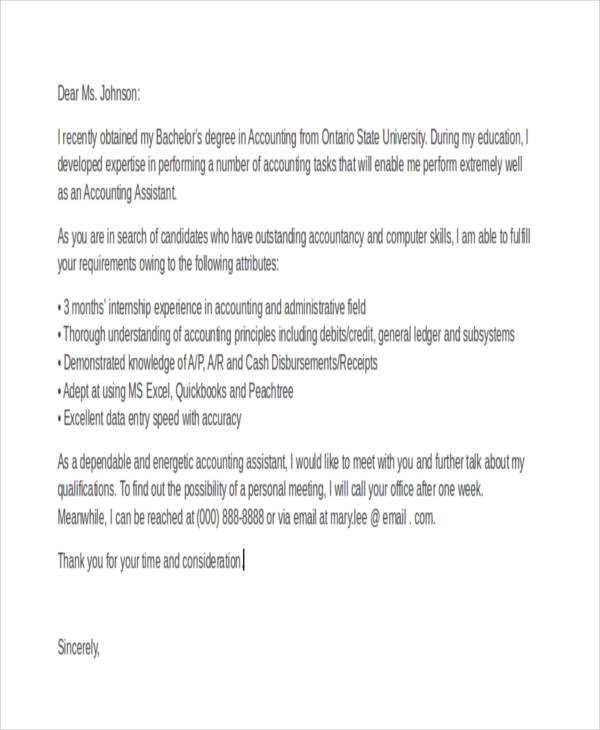
In the first paragraph, mention the role you are applying for and how you found out about the opportunity. Be clear about your enthusiasm for the position and the company. A simple approach is to show how your recent education has equipped you with the right skills for the job.
Skills and Experience
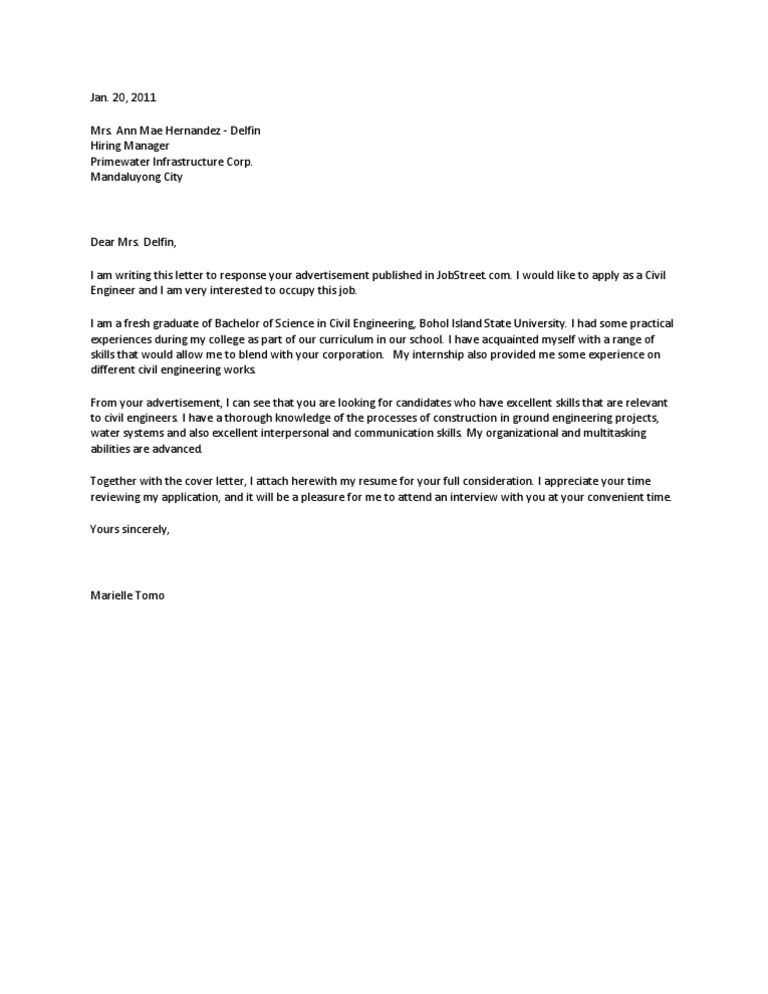
The next section should focus on specific skills or projects that match the job description. Include examples from your academic work or internships that demonstrate your abilities. Show how these experiences will help you contribute to the company’s success. Avoid generic phrases and instead, give concrete examples that show your value.
Close by expressing your eagerness to discuss how you can contribute to the team. Thank the reader for their time and consideration, and end with a professional sign-off.
How to Start Your Cover Letter
Begin your cover letter by directly addressing the hiring manager or recruiter. If you know their name, use it. For example, “Dear Mr. Smith.” If not, use “Dear Hiring Manager.” This personal touch shows you’ve researched the company and made an effort to connect with the right person.
Next, introduce yourself and state the position you are applying for. Be clear and concise. Instead of vague statements, say something like, “I am a recent graduate with a degree in Marketing, and I am excited to apply for the Digital Marketing Assistant role at XYZ Corp.”
In this first paragraph, highlight a key reason why you are interested in the role or company. Focus on how your background aligns with their needs and values. Avoid generic statements like “I’ve always been passionate about marketing” and instead mention specifics about the company or its projects that excite you.
Highlighting Your Educational Achievements
Focus on specific courses, projects, or academic honors that showcase your skills and potential. Mention any relevant coursework that directly ties to the job you’re applying for. For example, if you’re applying for a marketing position, highlight courses in marketing, communications, or consumer behavior.
Include any projects that demonstrate practical knowledge and problem-solving abilities. A well-executed project can show your ability to apply classroom learning to real-world scenarios. Briefly describe the challenge, your approach, and the results.
If you’ve earned any awards or distinctions, highlight them clearly. This could be scholarships, Dean’s list honors, or any academic competition victories. These achievements give insight into your work ethic and commitment to excellence.
Avoid listing every course you took. Instead, choose those that are most relevant to the position and highlight how they align with the company’s needs.
Demonstrating Your Skills and Strengths
Highlight your abilities by providing specific examples of how you’ve applied them in real situations. For instance, if you’re a recent graduate with experience in teamwork, mention a group project where you contributed to its success. Include the tools or methods you used, such as collaborative software or problem-solving techniques. This shows potential employers how you bring value to a team setting.
Quantify your achievements wherever possible. Instead of simply stating that you are detail-oriented, explain how your attention to detail resulted in a significant reduction in errors or saved time in a previous project. Numbers provide clarity and make your strengths tangible.
Demonstrate your adaptability by sharing an example where you successfully learned a new skill or overcame an unexpected challenge. This not only proves that you’re flexible but also that you can thrive in dynamic environments. Whether it’s mastering a new software or adjusting to a change in project direction, this skill is highly valued in any role.
Showcase your communication skills by describing situations where you successfully conveyed ideas to a diverse audience, whether in presentations or written reports. Effective communication can set you apart, so highlight times when your ability to articulate complex ideas led to a positive outcome.
Don’t forget to include your problem-solving ability. Share a specific instance where you identified a problem and took initiative to resolve it. Detail the steps you took and the outcome, focusing on how your approach made a measurable impact on the situation.
How to Tailor Your Letter to the Job
Focus on the specific qualifications and skills listed in the job description. Mention your experience or academic projects that directly relate to the role. Highlight how your background aligns with the company’s goals and culture. Refer to key responsibilities mentioned in the job posting and demonstrate how you’ve successfully handled similar tasks in the past. Use keywords from the job listing to show you’ve read it carefully, making sure your letter reflects the company’s needs.
Research the company’s values and tailor your letter to show you align with them. Mention their recent projects or initiatives and explain how your skills would contribute to their success. Customizing your language to match the tone of the company’s communications helps to create a stronger connection.
Use a table to compare the job requirements with your skills:
| Job Requirement | Your Skill |
|---|---|
| Project Management Experience | Led a team of 5 to complete a product launch on time |
| Data Analysis | Analyzed customer feedback to identify trends and improve service |
| Technical Proficiency | Proficient in Python, SQL, and Excel for data analysis |
By matching your qualifications to the job description, you present yourself as a strong candidate who understands the role and can contribute to the company’s success.
Finishing Strong: The Closing Statement
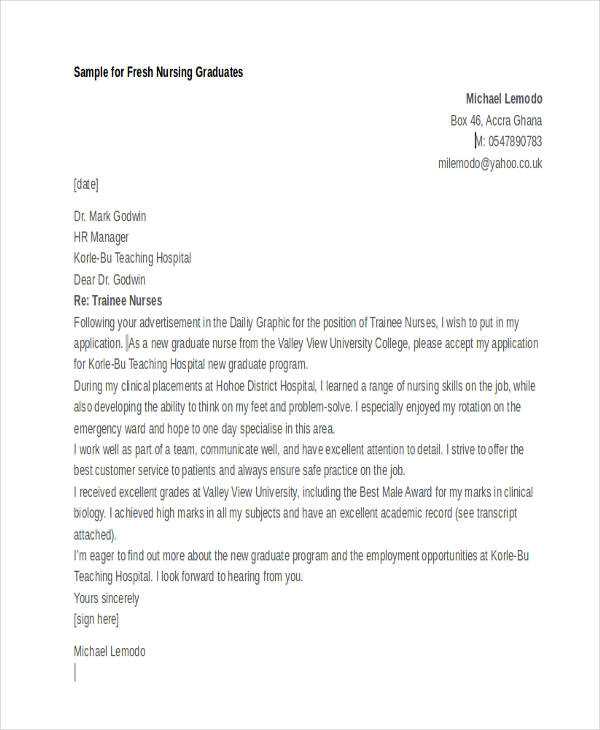
Close your cover letter with a statement that leaves a strong impression. Be direct and confident in expressing your enthusiasm for the role. Your goal is to show eagerness without sounding overly assertive. Here’s how to do it:
- Reaffirm your interest. State clearly that you’re excited about the opportunity to contribute to the company and align your skills with their needs.
- Express appreciation. Acknowledge the reader’s time and consideration. This shows respect and reinforces a positive tone.
- Be clear about the next steps. Politely mention that you’re looking forward to discussing your application further in an interview. It’s important to express your availability and eagerness to move forward.
End with a professional sign-off. “Sincerely” or “Best regards” works well to convey professionalism and respect. Keep your closing concise and leave no doubt that you’re excited about the opportunity.